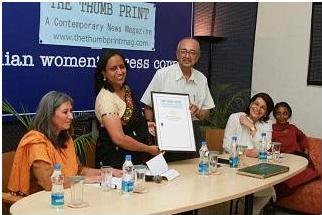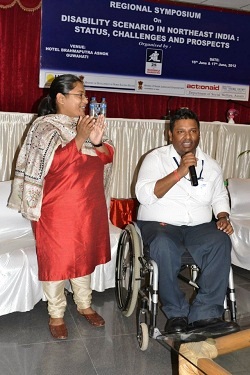Publishing their work is, for writers, a subject fraught with emotion. A fortunate few aside, the primary emotion it generates in the rest of us is a combination of fear, longing and/or anxiety – which is probably why I have put off writing about it until now! Despite my gratitude at having had work published in eight countries so far, I am keenly aware that to claim any kind of expertise on the subject of publication would be outrageously misleading. So let’s get that straight from the start.
To be honest, the process of being published is about as predictable as the experience of romantic love. In fact, the two have a lot in common. In a way, it is a form of falling in love when you find someone who wants to publish your work; it means that they like it (a lot), and are willing to spend time on it. That is no small commitment. And just as the search for love can be a harrowing one, the search for a publisher – as almost any writer can tell you – is, on occasion, equally challenging. And that’s without even holding out for a long-term relationship!
Before we get further into this topic, I want to introduce one caveat. Take a minute to consider if being published is actually the main reason that you are writing. I have touched on this in earlier posts, but it is still worth pointing out that even if everyone else around you thinks that a writer’s job is to get published, you don’t necessarily have to feel the same way. Because if there is even the smallest chance that publication isn’t that important to you, it makes it a lot easier to experience the creative process as something joyful, rather than stressful. Why drink the Kool-Aid if you don’t have to?
Recently, at the CALM lit fest in India, I took part in a panel discussion titled ‘Publish or Perish’, and came to the conclusion that for the serious writer, this is a false dichotomy. Because even if one is eager to be published, I would argue that a writer’s survival essentially hinges on the question of ‘producing or perishing’, rather than publishing. As long as you are writing, and continuously working to improve the quality of what you produce, it means that you are honing your creative skills and growing as a writer.
Rejection, sadly, comes with the territory. And if publication is the ultimate aim, then it’s worth taking the advice offered by award-winning novelist Barbara Kingsolver, who said, “This manuscript of yours that has just come back from another editor is a precious package. Don’t consider it rejected. Consider that you’ve addressed it ‘to the editor who can appreciate my work’ and it has simply come back stamped ‘Not at this address’. Just keep looking for the right address.”
The financial realities of a writer’s life are undeniably challenging. Giving up a day job may be a dream for many, but for most, it’s likely to remain just that. Nor is getting published necessarily a ticket to financial independence. The days of huge advances and book tours guaranteeing the writer a life of comfort are over, if they ever really existed. Apart from a handful of established authors and a small number of new discoveries who are touted as ‘the next big thing’, most writers can expect to continue with their day jobs, and additionally, to spend a considerable amount of time on networking, promotion and that dreaded word ‘platform’. Often at the cost of precious writing time.
For those further down the food chain, namely emerging writers, it’s even harder. On the one hand, many journals and competitions make it appear as if a writer is privileged just to get their work published, and should therefore not expect any remuneration. On the other hand, some fellow writers and writing instructors warn that giving away your work without payment is a mistake.
It is certainly true that writing is hard work, and should be properly remunerated. But given the environment in which we operate, the answer as to whether you should give away your labour without extracting payment is probably “It depends”. It depends on whether the cost of doing so is outweighed by the benefits that publication will bring in that particular instance, e.g. if you are writing to raise awareness for a cause, if the exposure you get from the publication significantly contributes to building your own readership, and so on.
Getting down to the nitty-gritty, the ‘how-to’ part of this equation, one reaches the inescapable conclusion that there are no ‘five easy steps to becoming a published writer’ – regardless of what any number of articles on the Internet would have you believe. Failure to get work published is such a source of heartache and frustration for so many writers, it shouldn’t really be necessary to point out that it isn’t that easy. And indeed, any articles which make it sound otherwise are the literary equivalent of snake oil salesmen. Don’t buy the snake oil. The painful truth is, as Seth Godin said, “Bullet points, step by step processes that are guaranteed to work overnight, proven shortcuts…If it was easy, everyone would do it…they sell because they promise to reduce our fear. It will take you less time and less effort to do it the difficult way than it will to buy and try and discard all the shortcuts.”
So having given you all of this bad news – some of which was probably not news to you in the first place – let us consider the art of the possible. There are no guarantees where publishing is concerned, but there are a few key principles that can help you improve the odds. I will confess at the outset, however, that most of them require putting in a fair bit of work!
Authenticity of voice: One thing that makes a piece of writing stand out is, of course, the voice. There may be a limit to the number of novel ideas and themes that a writer can come up with, but there is nothing that limits the originality of viewpoint in the telling of that tale. By that, I don’t mean affecting an experimental style or performing literary calisthenics. It is just that when a story sounds original, it is frequently because a good idea has been rendered in an authentic voice. And here I would add that for me, the issue of authenticity refers not merely to whether or not something is true – or even whether it sounds true (a good writer could make many things sound true) – but whether or not it could have been true. And that is the acid test I keep in mind, whenever I read over what I have written. I recently had to make the very painful decision to pass up a publishing opportunity because I was asked to incorporate elements that would make the story more accessible to a Western audience. While accepting the expediency of that approach, I could not bring myself to add the strikingly unrealistic details suggested, or to put the character in a situation that I knew would never occur in that context – not in the real world.
Whether or not we choose to accommodate such requests/instructions is very much a personal decision, and one that only a writer can make – because he or she will be the one paying the price for whatever decision is taken. It is not uncommon for non-western writers to be told to ‘tone down’ local nuances or cultural complexities in order to make their writing more appealing to western readers. Frankly, I’m not sure we are giving the reader enough credit. If a story is well told, with the nuances and complexities woven seamlessly into its fabric, there should be no reason why it cannot travel to the international market. Skilful editing can tweak it into shape, but dumbing down a story because you think that an overseas audience won’t ‘get it’ seems unnecessarily patronising. It is often the authenticity of a story that enables the reader to empathise with its characters, just as it can be the uniqueness of an author’s literary voice that attracts the attention of a publisher.
Take your time: In an increasingly fast-moving world, the writer is no more immune to the pressures of time management than anyone else. But the truth is, where creative work – of whatever kind – is concerned, rushing rarely yields the best results. If you have other demands on your time, as most of us do, be ferocious in protecting your time to write. And in between working on writing and living your life, remember to schedule downtime for yourself (some of it alone), making sure that it is spent on pleasurable pastimes and not aimed solely at meeting a series of social/familial obligations. It is a combination of feeding creativity through rest and respite – along with ruthlessly maintaining your right to work at a pace that enhances the quality of what you produce – that will enable you to showcase your talent, and ultimately result in the kind of work that some editor(s) or publisher(s) will find appealing.
Revision is your friend: I just know I’m not going to make myself popular with this one! But the truth is, there is no way of making your words sing unless you are willing to revisit and revise what you have written more than once. I have met many aspiring writers who send out an insufficiently polished draft, without realising that by doing so they are in fact sabotaging their chances of being published. Your story needs to be the best version possible in order to stand out against all the competition it will face for the attention of editors and publishers.
My short story ‘Getting There’ has been published three times so far: in the US, the UK and India. In the most recent version of the story, which appears in the Lifelines anthology published by Zubaan Books, two scenes have been significantly rewritten, reflecting what I have learned since I first wrote the story four years ago. And while I’m not suggesting that anyone should be a raving perfectionist (in my case, let’s face it, with the stress on the ‘raving’), the truth is that ‘Getting There’ has been through a total of around twenty revisions since its first incarnation, about five of them substantive. So be prepared to revise your work, polish the working draft, take a break, and repeat the entire cycle as necessary. For each painstaking round of revision – and to be quite honest, I much prefer the process of doing multiple revisions to the anxiety of vomiting up the first draft – you will significantly improve your chances of selection.
Try to give something back: Writers talk (and hear) a great deal about the need to network effectively, and it is undoubtedly useful and interesting to communicate with your peers. But there is another aspect of such communication that is severely underrated – that of making a contribution to the community(ies) that you are part of. This is of course very much an individual decision, but personally, I believe it’s a good policy to dedicate some amount of time to helping others out.
This may seem counterintuitive in a world where we are already struggling to protect our writing time, and it is certainly true that an author will receive many requests: for help, for feedback, for advice. You certainly can’t respond to all of them. And you shouldn’t – otherwise you will never be able to get on with your own work. But whenever possible, it is worth providing a little help to a fellow scribe. Among other things, it builds goodwill; except, of course, in the case of folks who consider themselves entitled to everyone else’s attention and help. Watch out for those. The hard truth is that there is no reason why anyone should be interested in reading your work – unless it is outstandingly brilliant – if you have never been willing to read anyone else’s. After all, no one owes you anything; least of all, the publishing industry.
Keep on keeping on: In the end, the likelihood of having your work published comes down, at least partly, to persistence. Seeking out opportunities for submission requires time. Scouring the Internet for literary magazines that are a good fit with your writing is hard work. There are certainly more opportunities out there than most of us are aware of. The Commonwealth Writers website occasionally provides information on this, and I have also provided links to a handful of other websites at the end of the article. A good way of maximising your chances of finding submission opportunities is by collaborating with others to exchange information, although some people are reluctant to do so. In most cases though, your work will have to win out against significant competition in order to be chosen, regardless of whether or not you choose to share news of publishing opportunities with your immediate network. So it is rarely a zero-sum game.
It’s also worth keeping an eye out for trends in the industry that open up new options for publication. For example, an interesting development for writers in South Asia is that there currently seems to be a greater receptivity in India for writing from other parts of the region. Perhaps at some stage in the near future, we will see a committed pan-South Asian readership; if not, just yet, a pan-South Asian publishing industry.
Avoid negativity: One of the hardest things in this business is to stave off the bitterness that can set in after multiple rejections. One of my short stories, ‘Tangled Threads’, went through a year-long process in a competition in the US, where it fought its way through three rounds of cuts. You can imagine my disappointment when it was dropped in the final round of the award process, especially since I had allowed my hopes to rise (against my better judgement) as I survived each of the first three sessions of culling! After giving into self-pity for a day or two, I reluctantly realised that there was another way of looking at this. The in-depth critiquing process that the story had survived for so many rounds could actually be taken as a quality endorsement of sorts. At least it meant that ‘Tangled Threads’ was reasonably well-written. I will admit that I still feel an occasional twinge at the memory of that near-miss. But I’m definitely getting better at reminding myself about the quality endorsement part.
Facing up to rejection isn’t made any easier by the success of others. It is reasonable enough to feel envy when someone is doing particularly well, to think “I wish that would happen to me”. We all go through that; on a fairly regular basis, even. But it becomes something else entirely when you allow it to dominate your thinking to the extent that you are in a constant state of frustration and anger. Not least because such a frame of mind, however understandable, is deeply counter-productive. I was struck by one of Buddha’s sayings, which applies here: “Holding on to anger is like grasping a hot coal with the intent of throwing it at someone else; you are the one who gets burned.” Occasional envy is natural, but a writer indulges in wholesale negativity at their own peril – at the cost of their peace of mind, and possibly at the cost of their creativity.
Put it out there: We no longer live in an era when writers can expect to be ‘discovered’. Promotion is a reality that every author has to face up to, but there are very different ways of doing it. As is the case with the entire publishing process, there are that things we can control, and things that we can’t. I find it useful to focus on the former. So, at the risk of being considered an idealist, I will confess that I do believe in the “build it and they will come” approach. It’s worth remembering, though, that creating something of value is only the first step. You have to make sure that you actively put it out there for editors and publishers to discover. But do that only after you have done a thorough quality check of your own work.
In summary, while monitoring industry trends and developing your own strategy for publication is all very well, I’m inclined to think that the most important part of any writer’s path to being published lies in the hard work an individual puts into writing and re-writing. The publishing industry is undergoing a massive transition, and no one quite knows where things will end up. So any predictive exercise is likely to be a matter of second-guessing.
Personally, I write about the things that move me, the things that are important to me, and the stories that drive me to tell them. I very much hope that someone will be interested in reading them once I have finished, but I never write them with an audience in mind. If I did, I would worry too much about pleasing that audience and not nearly enough about pleasing myself. And judging from my own experience as a reader, I suspect that trying to guess what readers want – unless you decide to go for the lowest common denominator – becomes a form of Russian roulette.
I also believe that whatever the gimmick of the season might be, readers will always want a good story: something they can relate to, and something that touches them in some way. That story can be about almost anything – but it needs to be convincingly written, preferably without hidden agendas or speculative intentions.
David Foster Wallace has claimed that all writers are slaves to “an overwhelming need to be liked”, and perhaps that is precisely what each of us needs to battle against. Because no story will be liked by every reader, and the attempt to cheat the odds may mean doing an injustice to the story you are trying to tell. Speaking for myself, I am perfectly happy to settle for pleasing some of the people some of the time. Especially if they are the right people: the readers who understand my work, and enjoy the stories that I am trying to tell. The ones who ‘get me’.
Try out your luck with these folks (no entry fees or reading fees required!):
http://www.openroadreview.in/guidelines/
http://www.desiwriterslounge.net/papercuts/submissions
http://www.earthenlampjournal.com/submissions.php
http://themissingslate.com/submit-work/







































